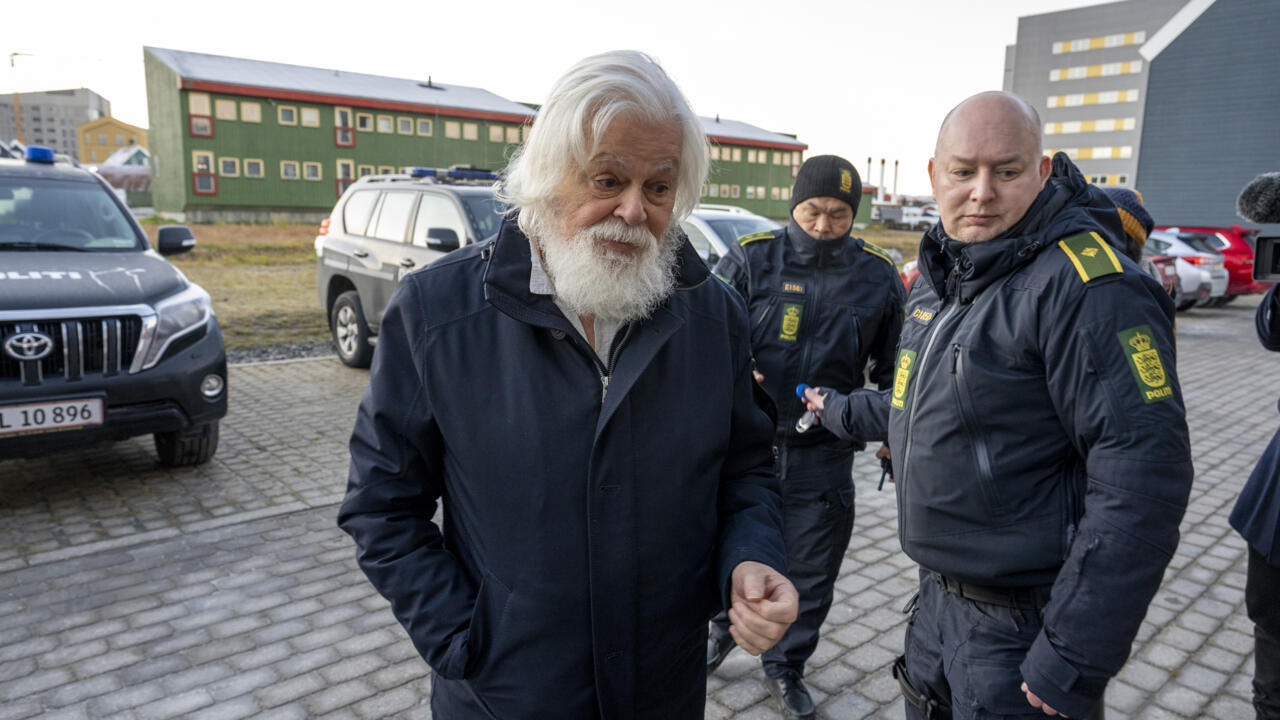Watson has been held since July when his ship docked in Nuuk – the capital of the Danish autonomous territory – on a 2012 Japanese warrant, which accuses him of causing damage to a whaling ship and injuring a whaler.
Greenland police said in a statement that following the Ministry of Justice’s decision in the case of extradition for Paul Watson, the 74-year-old was released at 08:46 am local time (1046 GMT). “He is free. We’ve just been informed by the Ministry of Justice, he’s not going to be extradited,” Watson’s lawyer Julie Stage told AFP.
According to documents viewed by AFP, Denmark reached its decision while considering the duration of Watson’s detention following his arrest and the time it would take for a possible extradition to be carried out. The ministry also considered “the fact that the acts for which extradition is sought are more than 14 years ago, and the nature of the acts in general.” “The decision is based on an overall assessment of the circumstances of the specific case,” the ministry said in a statement.
Contacted by AFP, Japanese foreign ministry officials in charge of the issue were not immediately available for comment.
Watson was arrested on July 21, when his ship was on its way to “intercept” a new Japanese whaling factory vessel in the North Pacific, according to the CPWF. Tokyo accuses Watson of injuring a Japanese crew member with a stink bomb intended to disrupt the whalers’ activities during a Sea Shepherd clash with the Shonan Maru 2 vessel in 2010.
Watson’s lawyers have said they have video footage proving the crew member was not on deck when the stink bomb was thrown. “Japan tried to silence a man whose only crime was to denounce the illegality of the industrial massacre disguised as scientific research,” one of his lawyers, Francois Zimeray, told AFP. Zimeray added that Watson “will now be able to resume his fight for respect for nature.”
Zimeray has previously argued that Watson would not get a fair trial in Japan. “In Japan, there is a presumption of guilt,” he told AFP, adding: “Prosecutors are proud to announce that they have a 99.6 percent conviction rate.”
In a rare public comment on the case, Japan’s Foreign Minister Takeshi Iwaya has said that the extradition request was “an issue of law enforcement at sea rather than a whaling issue”.
Jean Tamalet, also a lawyer for Watson, told AFP that “the fight is not over.” “We will now have to challenge the red notice and the Japanese arrest warrant, to ensure that Captain Paul Watson can once again travel the world in complete peace of mind, and never experience a similar episode again,” Tamalet said.



neither are humans. its always been about the intelligence seen in dolphins and whales. many species if not threatened with exstinction would have people fighting to not have them hunted. This would certainly be the case with apes and monkeys im sure (again they are endagered which currently protects them but if they were not there would be people fighting to have them left alone)